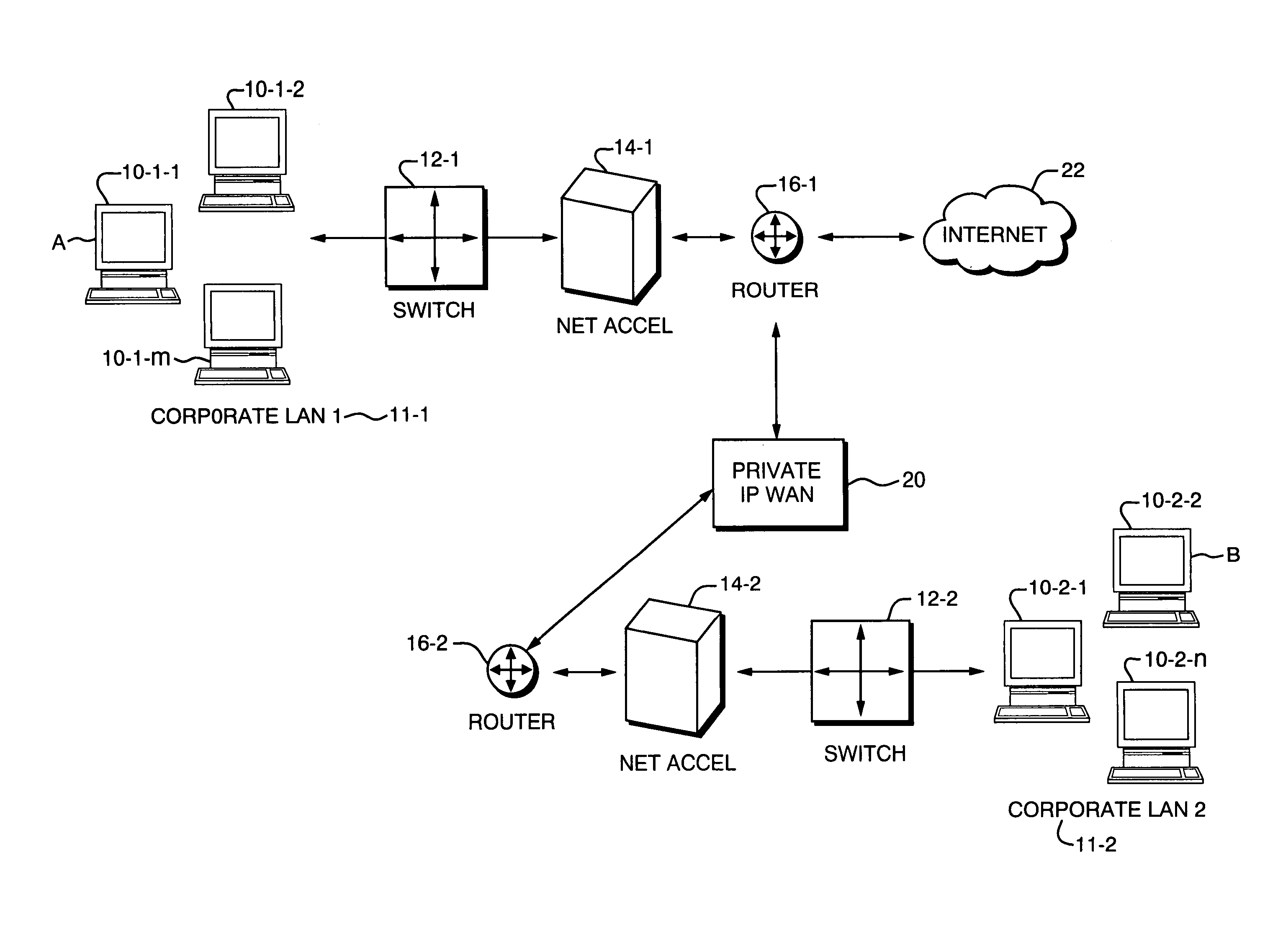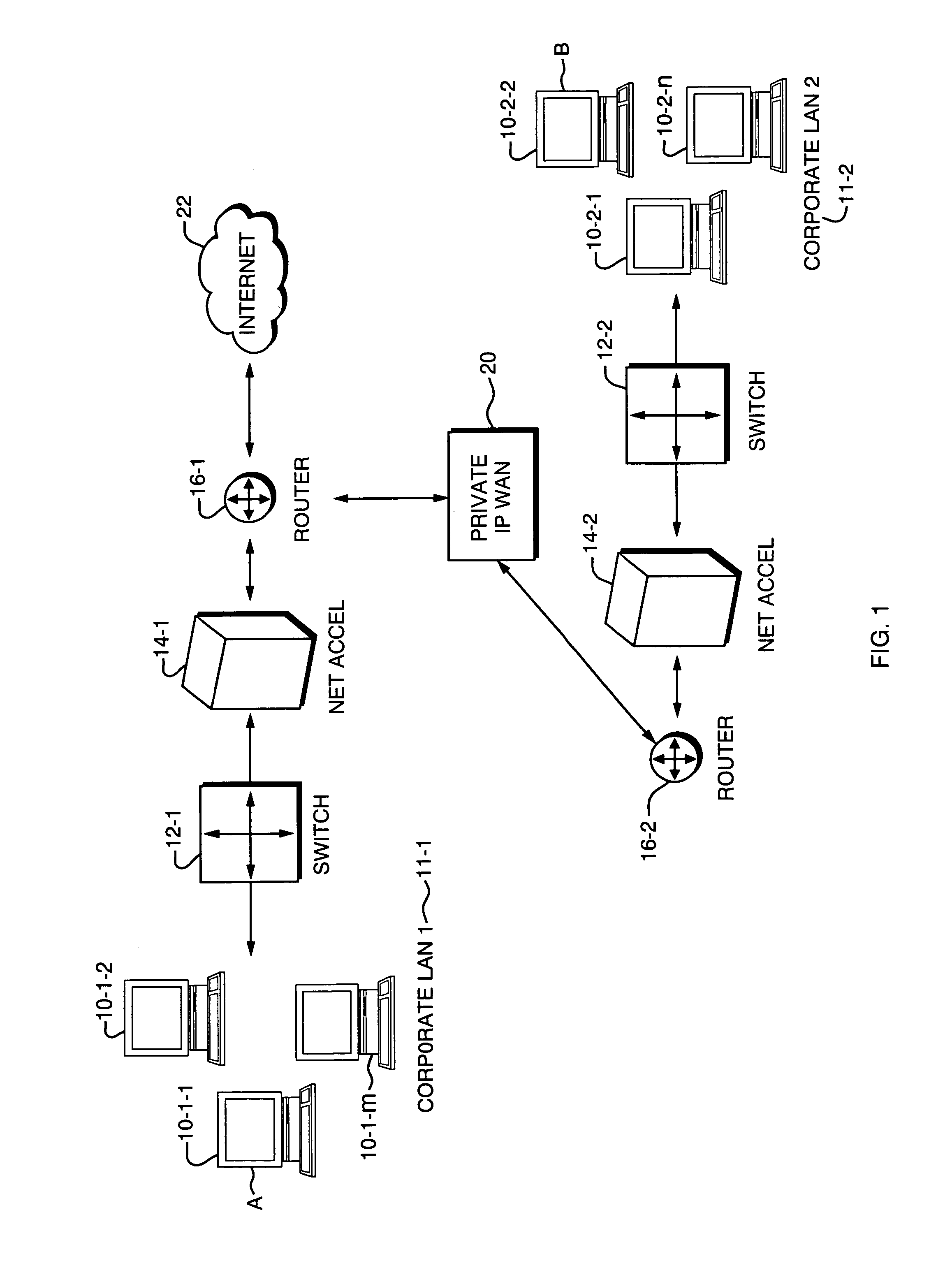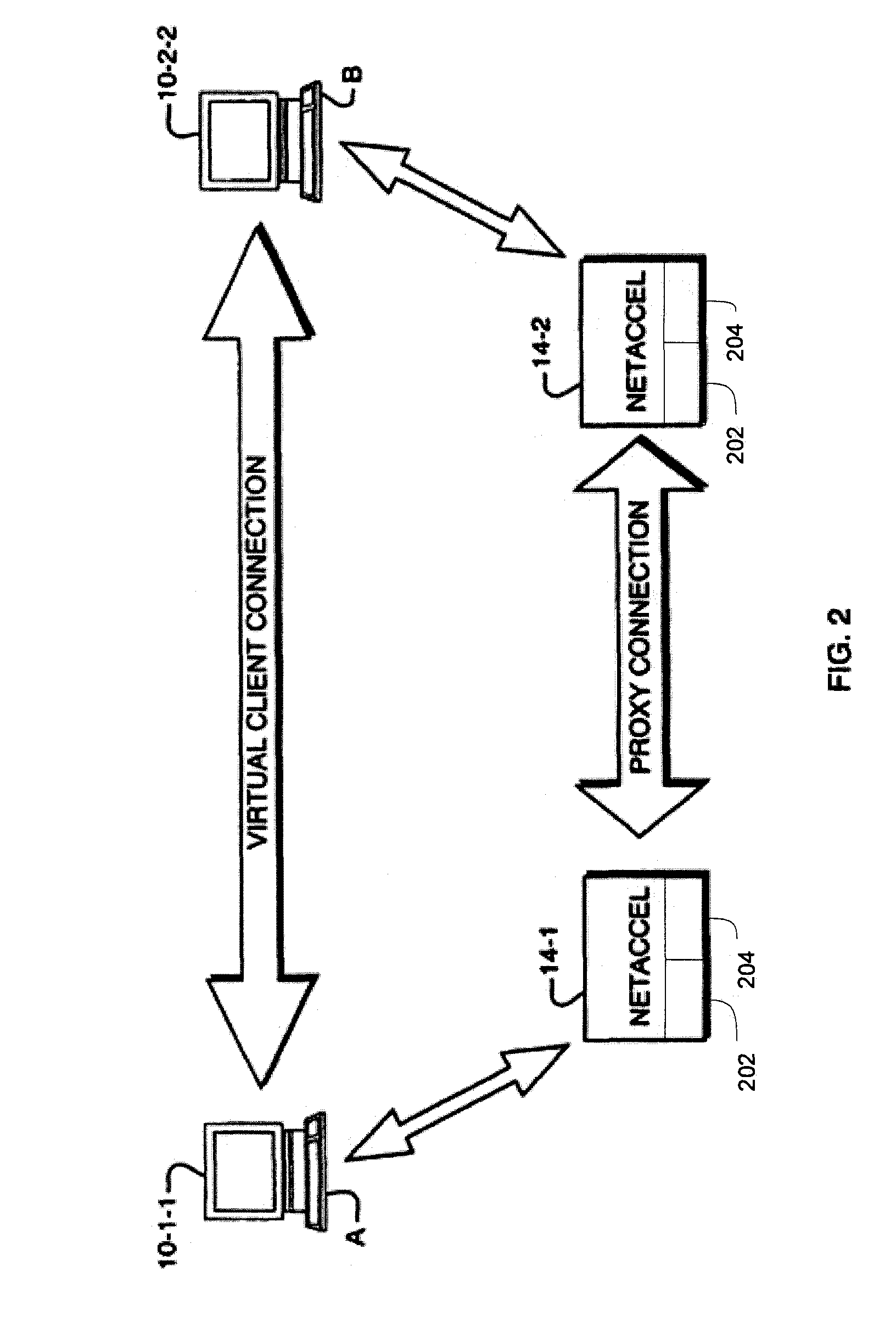Accelerating network performance by striping and parallelization of TCP connections
a network performance and parallelization technology, applied in the field of wide area network (wan) communications, can solve the problems of increasing user response time, critical bandwidth shortages across many networks, and increasing the demand for instant data communication, so as to increase the number of tcp connections, increase the network utilization, and boost the performance of applications running over the wan
- Summary
- Abstract
- Description
- Claims
- Application Information
AI Technical Summary
Benefits of technology
Problems solved by technology
Method used
Image
Examples
Embodiment Construction
[0025]A description of preferred embodiments of the invention follows.
[0026]To achieve the desired performance improvement the present invention employs a network accelerator device (NET ACCEL) 14 at each end of a constrained Wide Area Network (WAN) connection. In the example in FIG. 1, improved communication is to be provided between a first or Local Area Network (LAN) 11-1 and a second LAN 11-2. The respective LANs 11 each consist of a number of client computing devices located at network end nodes such as devices 10-1-1, 10-1-2, . . . 10-1-m that comprise the first LAN 11-1, and similar client devices located at nodes 10-2-1, 10-2-2, . . . 10-2-n located within the second LAN 11-2. It is important to note that the devices herein referred to as the “clients”10 are unaware that their traffic is being communicated via the network accelerators 14-1 and 14-2. Traffic passing through the network accelerators 14 is compressed in a way in which is transparent to the end nodes 10 while ac...
PUM
 Login to View More
Login to View More Abstract
Description
Claims
Application Information
 Login to View More
Login to View More - R&D
- Intellectual Property
- Life Sciences
- Materials
- Tech Scout
- Unparalleled Data Quality
- Higher Quality Content
- 60% Fewer Hallucinations
Browse by: Latest US Patents, China's latest patents, Technical Efficacy Thesaurus, Application Domain, Technology Topic, Popular Technical Reports.
© 2025 PatSnap. All rights reserved.Legal|Privacy policy|Modern Slavery Act Transparency Statement|Sitemap|About US| Contact US: help@patsnap.com



